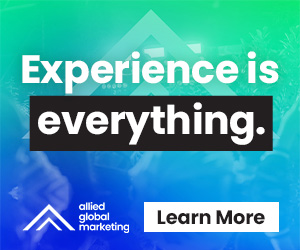
Artificial intelligence will definitely shake up the advertising market but how will it impact on the all-important search market which is a key part of many advertising budgets and a cash-cow for Google, asks Colm Sherwin, chief digital & investment officer with Core.
“I hate to say it, but I think this stuff is under-hyped, not over-hyped, because the arrival of intelligence in a non-human form is really a big deal for the world.” These are the words of Eric Schmidt, former CEO of Google/Alphabet, in a recent interview with CNBC about the evolution of AI. He further explained that while change typically occurs over a twenty-year period in most industries, he believes that AI will impact us much sooner, in less than five years, because the necessary infrastructure for this technology is already largely in place.
The irony of this statement from an ex-CEO of Google has not gone unnoticed, as Google is often seen as slow to leverage AI in their main revenue source, Google Search. Although Google has consistently used AI to power their products behind the scenes, it has only recently become evident how they plan to integrate AI in a more consumer-facing way.
AI truly entered the mainstream in late 2022 with the rise of ChatGPT, OpenAI’s Generative AI offering. In response, Google launched Bard, which received a mixed reaction. Bard later evolved into Gemini, and in recent weeks, we have seen for the first time how Google plans to incorporate Generative AI into their search results. Changes are expected to take effect in some markets almost immediately.

Why is this important for Irish advertisers and what changes can we expect?
In 2024, the Irish ad market is valued at approximately €1.5 billion, with nearly 25% of this expenditure going to Google. No company has held such a significant market share since the industry was deregulated in 1991. Google is active in the growing advertising categories: search marketing is expected to grow by 4% this year, while YouTube, also owned by Google, will see a 10% increase as online video continues to erode linear TV station revenues.
There are threats, however. Amazon is certainly winning the online shopping wars globally, with approximately 70% of product searches beginning on their site compared to less than 30% on Google. Additionally, TikTok and Instagram have disrupted the discovery process, with nearly 40% of Gen Z using these platforms for search instead of Google.
Google also faces the well-publicised threat of Microsoft’s Bing, which has incorporated Gen AI (powered by OpenAI) directly into its platform over the past year. This means that when you search on Bing, you either get multiple search results, like what Google has provided for years, or you get a single result powered by Gen AI. Bing is attempting to create new behaviour and potentially a new industry, much like how Google created or at least perfected search.
Google’s announcement last week aligns with Bing’s offering. When a user searches on the platform, they may receive standard search results, or they may get both a search result and a Gen AI result. Google’s obvious advantage over potential disruptors is the vast amount of data at their disposal.
There are two watchouts though. It is not clear how often the Gen AI result will appear, and for advertisers it is not clear where advertising fits within the Gen AI result. For now, Google will put ads around the Gen AI result versus directly within it. Gen AI results seem to be the biggest problem facing Google. As the industry migrates towards Gen AI powered results, they face the conflict of a potential decline in revenues from search advertising as people just search less.
Is the competition disrupting Search?
The research firm Gartner predicted earlier this year that by 2026, traditional search engine volumes will drop by 25%, as a more “agent” led search approach, in which AI models retrieve and generate more direct answers take hold. Locally we are witnessing signs off this, with search volumes down in some categories between 10-25% over the past 18 months. It is worth mentioning this is not the case for all categories.
The disruption is happening, but why is there constant growth in ad spend on search? Realistically, Google products are very cost-effective. If you have a performance strategy working towards a target, nine times out of ten, Google will achieve it. This performance gives Google more wiggle room to increase costs if the CPA target is achieved, and realistically, this is the easiest option for them right now. As searches decline but performance continues, the best option is to increase costs to counteract the trend. Will advertisers pay this increased cost? For now, it does not look like a major issue if performance continues.
At the same time, they will start leveraging Gen AI results in their searches, but the scale and frequency of this change are worth watching. With 96% market share of search in Ireland, it is safe to say Google is in a strong position to slowly test Gen AI versus using it for every search. How advertising is incorporated into Gen AI searches in the future is the biggest watch-out for the industry.
Core’s Advice on Managing this Transition.
- Continue to monitor search activity to make sure it performs effectively.
- Ensure there is a strong content strategy across brand website to ensure it is Gen AI friendly.
- Wait and evaluate if behaviours change as significantly as predicted.
On one hand, giving consumers just one option when they search, does jar with me.
Consumers will need an element of transparency as to why the AI platforms are selecting one piece of content over another. The news industry has frequently highlighted this as a potential issue. On the other hand, the question for advertisers is how will Google monetise these results? As their primary revenue source, it is hard to see Google prioritising Gen AI over standard searches, but we have been here before. Nokia famously ignored the smart phone. HMV famously ignored digital audio. While ironically Yahoo famously ignored Google.
Eric Schmidt’s prediction that changes will impact us a lot sooner regarding AI is the big call out for now. Google’s market share says they might not be rushed to integrate Gen AI into every search result, but with increase competition from Instagram, TikTok and now Bing, they might not have any other option. For advertisers, the blurred lines between their Search, Social and AI strategies is the biggest watch out for now. Who wins this battle, only time will tell.




















